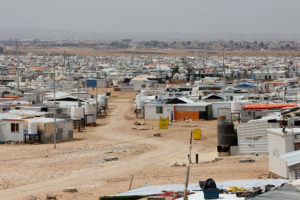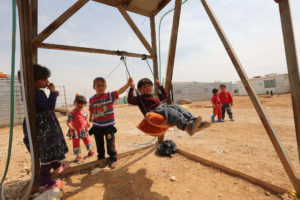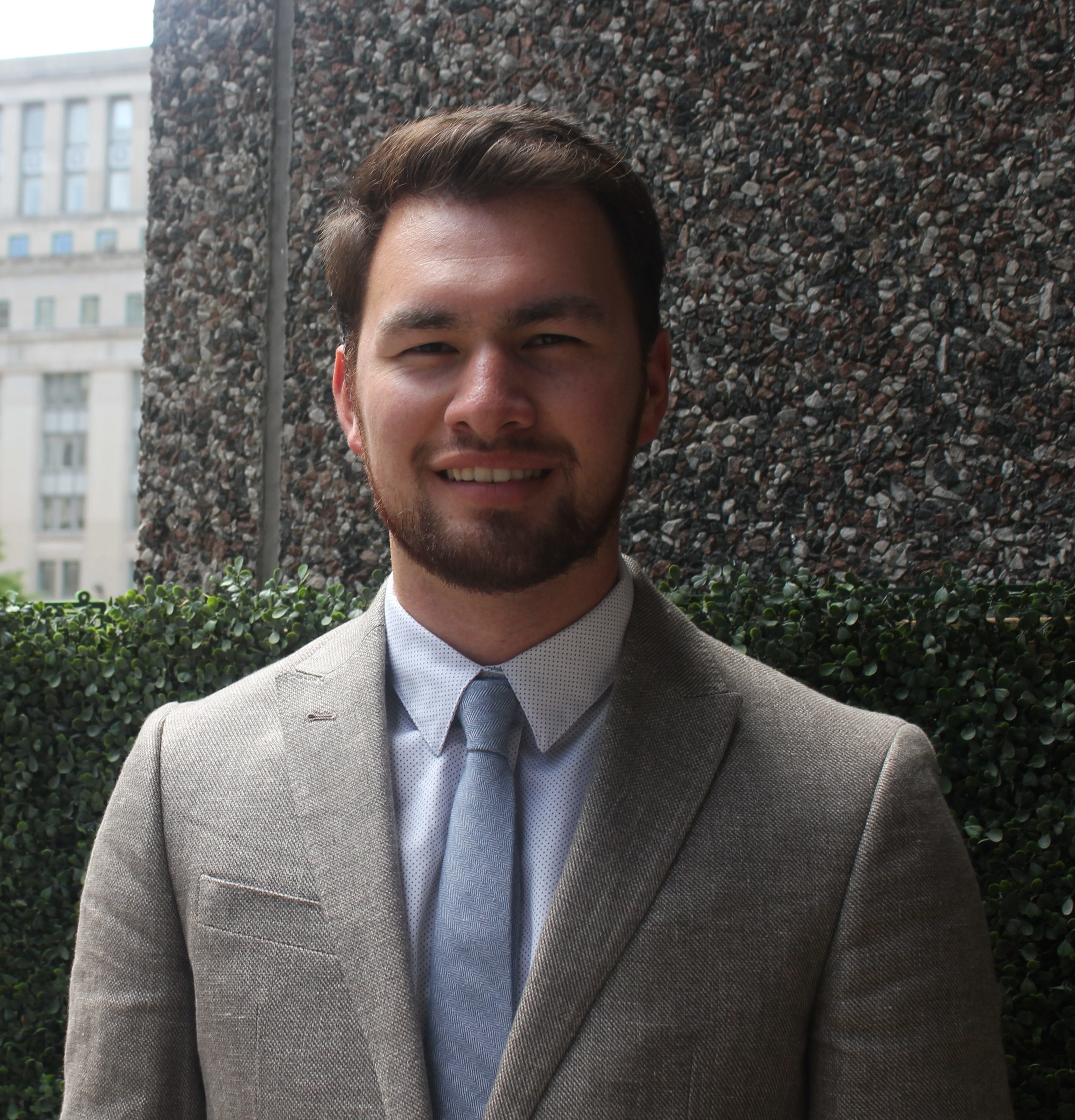On June 14, the French Embassy in Washington D.C. hosted a panel on the Syrian refugee crisis. The panelists offered new perspectives to old questions on refugee migration and reintegration, but the takeaway message was clear and necessary: Please do not forget about these people.
The Syrian refugee crisis has reached historic proportions, and while the fighting has entered its seventh year, no political solution is in sight. More likely than not, the Syrian Civil War will end as a result of attrition with the last army standing winning a blackened and fractured country as its spoils. Meanwhile, over 11 million Syrian refugees are in danger of suffering due to a different sort of attrition—international compassion fatigue.
The phrase “compassion fatigue” was first coined by Senator Alan Simpson in 1980 during a press conference on President Reagan’s Refugee Act of 1980, which expanded refugee admittance and integration programs while also raising the cap by 30,000 refugees. Senator Simpson said compassion fatigue referred to “potential unwillingness to respond to others,” usually as a result of limited resources or sustained exposure to others’ trauma or suffering.
Put simply, humans grow tired of helping, especially when they do not see the positive effect of their contribution.
The signs of compassion fatigue are already around us. Border towns in Turkey, Lebanon, and Jordan are bending under the strain. Their inadequate infrastructure and limited resources are no match for the nearly five million refugees who have arrived from Syria in the past six years. In Europe, hospitable cities are struggling to provide refugees with basic necessities such as food and healthcare.

“There is significant humanitarian fatigue on the part of the local population,” Leila Hilal, senior fellow at the New America Foundation, said during the panel discussion at the French Embassy. In Mafraq, a local Jordanian city bordering Syria, the population has nearly doubled since the crisis began, in addition to hosting the fourth largest refugee camp, Zaatari Refugee Camp, a mere eight miles away.
The signs extend into the second tier as well. One audience member asked, “Is it worth pouring money into this issue with no end in sight?” He has a point. Outside its borders, the United States is pulling its fair share of the weight, perhaps more than its fair share. In 2016, the United States donated almost five times more to the United Nations High Commissioner for Refugees than the next country (Germany).
Another panelist and senior fellow at the Urban Institute, Audrey Singer immediately responded that refugee assistance, especially abroad, is directly in the American national interest. Without sufficient financial assistance, the possibility of the bordering countries collapsing and another mass migration crisis looms large. Every panelist concurred. If the United States rolls back financial assistance to key states in the region, other states would buckle under the financial burden—they collectively could not match our donation. As the United States leads, the world follows.
Beyond financial assistance abroad, the last tier of refugee aid is at home, as countries accept the most desperate asylum-seekers and refugees into their own countries. A year after he coined the phrase “compassion fatigue,” Senator Simpson said before a joint committee of Congress, “The vast and growing world population means that we live in a world of limits, and tragically that may come to mean limits to compassion… We cannot enlighten the world if we in turn have been overburdened.”
Here, Simpson suggests national compassion is bounded by national interest, and he is right. We do not want to open the floodgates and oversaturate our communities with foreigners before they can assimilate. However, we are nowhere close to oversaturation. The United States can help more without diminishing its own national flourishing.

In truth, divisive rhetoric warning of a potential refugee inundation betrays our faith in the most rigorous refugee vetting and admission process in the West and our belief, deeply rooted in Judeo-Christian teaching, that justice is tempered by mercy and qualified by love. In a previous article for Providence, Joseph Loconte, a senior editor for this publication, similarly argues that no immigration system is risk-free, but to demand such a system would betray our deepest political and religious values.
Accordingly, it is in the national interest and spirit of the United States to accept a proportionate and limited amount of Syrian refugees.
These refugees are not the economic migrants or asylum-seekers wandering through Europe. The refugees willing to make the transatlantic journey and endure a two-year background check are the wealthiest, the most desperate, and the most vulnerable of all Syrian refugees. Dr. Singer refers to them as “an investment to society”—quite literally, in fact. A study by the National Bureau of Economic Research showed refugees pay $21,000 more in taxes than they received in benefits.
Beyond opportunity costs, taking steps toward Syrian refugee resettlement would re-establish the tone of moral American leadership in the world. Leading the international charge in refugee financial assistance and resettlement leaves no room for accusations of hypocrisy and allows the United States to put holdout countries on notice. As the United States leads, the world follows.
The media has been ineffective in allaying the national security concerns of the American people, sometimes fanning the flames of fear instead. President Trump continues to push his self-proclaimed travel ban, and though it has been blocked by the checks and balances our forefathers established, the narrative of national security continues to dominate the conversation.
National security should be the primary concern, but it should not cloud our moral vision. The legacy of the United States is built on the risks pioneers, soldiers, and presidents have taken to do the right thing; they understood the moral is in the national interest, and necessary to national flourishing.
Just as President Reagan delivered on his promise to admit thousands more Cuban refugees fleeing Fidel Castro during the Cold War and “make America great again,” so the Trump administration should lead and inspire the fatigued international community as we confront another global conflict with no end in sight.
—
Joshua Cayetano is an intern for Providence. Originally from the Bay Area, California, he is a member of the inaugural class of the William Penn Honors Program at George Fox University, where he also studies political science and history. In the spring of 2017, Joshua received the State Department’s Benjamin A. Gilman Scholarship to study in Amman, Jordan. His interests include Middle Eastern affairs, the application of faith in the public square, and advocacy for “the least of these.”
Feature Photo Credit: Refugees in Turkey. By European Parliament, via Flickr.







 Live in the DC area? Sign-up for Providence's in-person events list!
Live in the DC area? Sign-up for Providence's in-person events list!